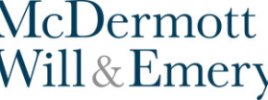Halo Elecs., Inc. v. Pulse Elecs., Inc. and Pulse Elecs. Corp.
In a case exploring the limits of what constitutes a sale or offer for sale “within the United States” under 35 U.S.C. § 271(a), the U.S. Court of Appeals for the Federal Circuit found that sales were carried out outside of the United States and, even though they were partially negotiated in the United States, did not constitute an infringement of U.S. patent rights under § 271(a). Halo Elecs., Inc. v. Pulse Elecs., Inc. and Pulse Elecs. Corp., Case Nos. 13-1472; -1656 (Fed. Cir., Oct. 22, 2014) (Lourie, J.) (O’Malley, J., and Hughes, J., concurring).
Halo accused Pulse of infringing its patents related to surface mount electronic packages containing transformers for mounting on a printed circuit board. Pulse’s products were manufactured in Asia and the majority of its products were delivered to customers in Asia. Pulse received the purchase orders for these products abroad. However, Pulse engaged in pricing negotiations with its customers in the United States, and Pulse’s U.S.-based employees had to approve prices quoted by its agents when those prices fell beneath a threshold. The district court granted Pulse summary judgment of non-infringement finding that its activities for these sales were insufficient to constitute a sale or offer for sale “within the United States.” After a trial finding that the same products that did enter the United States infringed Halo’s patents, the district court found Pulse’s substantial invalidity defense negated the objective prong of willfulness under In re Seagate. Halo appealed.
On appeal, the Federal Circuit panel affirmed that Pulse’s U.S.-based activities for its products manufactured and sold in Asia were not sales or offers for sale “within the United States.” The Court noted that while a sale is not necessarily limited to the place of transfer of the tangible property, but may also be determined by the place where agreement to such a transfer takes place, extraterritorial applications of U.S. patent law were disfavored. The Court found it was undisputed that the products at issue were manufactured, shipped and delivered abroad; that the purchase orders were received abroad; that the negotiations that occurred in the United States did not constitute a firm agreement to buy and sell; and that Pulse was paid abroad for its products. Based on these facts, the Court found it need not reach Halo’s argument that the place of formation of a contract can be determinative of whether a sale has occurred “within the United States.” The Court further explained that for an offer to sell to constitute infringement, the offer must be to sell a patented invention within the United States, and that Pulse’s actions therefore did not constitute an offer for sale cognizable under the Patent Act. Finally, the panel affirmed the district court’s finding of no willfulness, agreeing that Pulse’s presentation of a substantial invalidity defense at trial negated the objective prong of the willfulness test.
Practice Note: In a concurrence, Judge O’Malley and Judge Hughes, while agreeing with the finding of no willfulness under current case law, urged the full court to reexamine its enhanced damages jurisprudence in light of the Supreme Court of the United States’ decisions in Highmark v. Allcare Health Management Sys., and Octane Fitness v. ICON Health & Fitness. Specifically, the concurrence urged reconsideration of the two-part subjective/objective test required under Seagate; the requirement that willfulness be proven by clear and convincing evidence; whether de novo review is the appropriate standard on appeal; and whether willfulness must be decided by the court as a matter of law.

